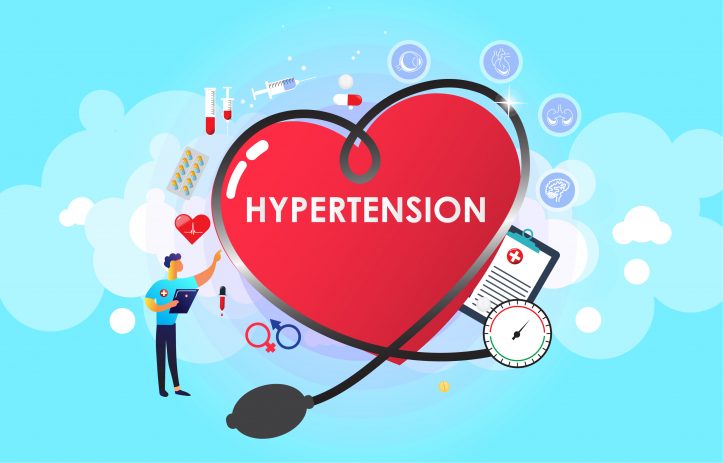Hypertension, also known as high blood pressure, is a medical diagnosis of elevated blood pressure, which occurs when either the systole or the diastole level reaches higher than normal over time. For most people, hypertension is mild and may be controlled without medication.
However, in some cases, hypertension can cause heart attacks, stroke, or even death. It is important to become familiar with this painful disease. Knowing what hypertension is and how it affects your body will help you take steps to control it and eventually reverse its effects.

Hypertension unlike just high blood pressure can be caused by several factors. These factors can be from your lifestyle, heredity, diet, and other environmental risks. In certain cases, hypertension can be caused by kidney disease. But the more common causes are unhealthy lifestyles, high blood pressure due to your genetics, increased sodium consumption, and other environmental factors that increase the risk of developing hypertension.
The first thing that someone needs to know about hypertension is that it is usually caused by hypertension of one or both arteries. For example, the common causes of hypertension in adults are hypertension of the cardiovascular system, known as coronary artery disease, and hypertension of the renal tract, also called renal brachycardia. Hypertension can also be caused by left ventricular hypertrophy, or LVH, of cardiomyopathy, or heart muscle failure. Hypertension of the digestive tract is called gastroesophageal reflux disease or GERD. Sometimes, hypertension can be caused by congenital heart disease, or CVD.
Hypertension, although it may not lead to any serious health problems, can be very stressful for the people who suffer from it. Many people find that hypertension may affect their quality of life. Because of this, many researchers have been looking at the possible links between blood pressure and diseases such as cancer, heart attacks, strokes, and diabetes. Some studies have found that there is a strong link between high blood pressure and mortality. There have also been some studies that suggest that high blood pressure may increase the risk of developing complications such as cancer, heart disease, or kidney disease.
Because there is no one test that will determine whether or not you have hypertension, it is best to take your own pulse and blood pressure readings regularly. This will help you determine if you are experiencing any of the symptoms of hypertension. Some of the symptoms include a faster heart beat or pounding heart, feeling dizzy, sweating, nausea, or vomiting. If you experience any of these symptoms, then you should make an appointment with your doctor immediately.
Hypertension and high blood pressure can be preventable by doing a few simple things. Living a healthy lifestyle will help you to avoid hypertension. By losing weight, quitting smoking, losing excessive body fat, and eating more fiber and lower-fat foods, you can help to lower your hypertension risk. Having a low stress level is also important. Losing stress is one of the best ways to improve your overall health. Stress can have many negative effects on your body including high blood pressure and hypertension.
Even though there is currently no known cure for hypertension, there are medications that can be used to treat its symptoms. Prescription medications, usually called antihypertensive drugs, are available for people to take for the rest of their lives. These medications are prescribed to treat the symptoms of hypertension, and they prevent the condition from getting worse by maintaining healthy blood pressure levels.
Some patients, however, do not respond to these prescription medications and may require some type of heart surgery. Hypertension and high blood pressure are the leading cause of heart attacks and strokes in the United States. Untreated hypertension can lead to more serious problems, such as congestive heart failure, heart attack, or even a heart attack and death in some people. Because of these risks, it is vital to see a doctor if you think you have hypertension. By seeing your doctor early, you can get your blood pressure lowered and prevent a lot of health issues in the future.